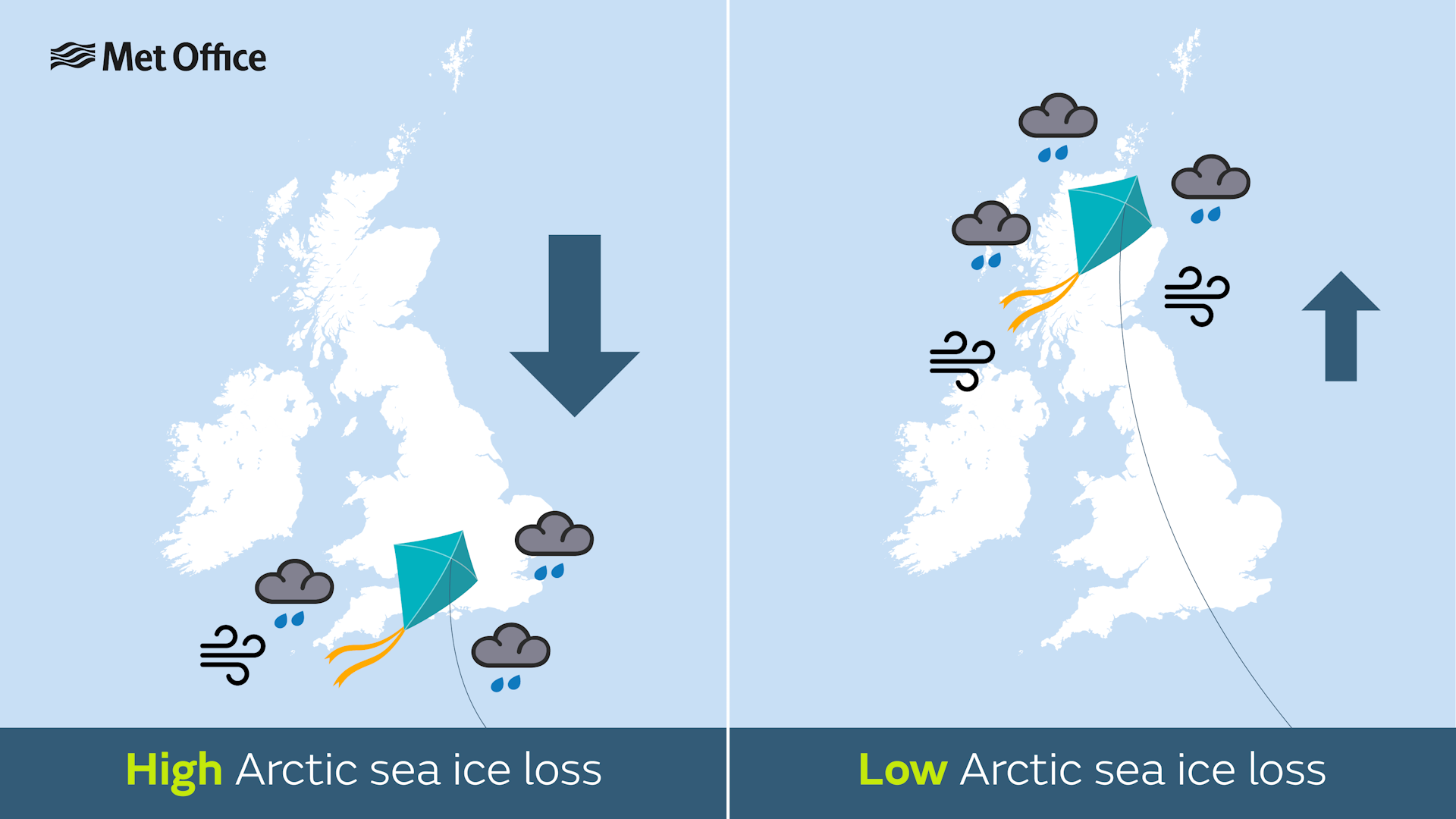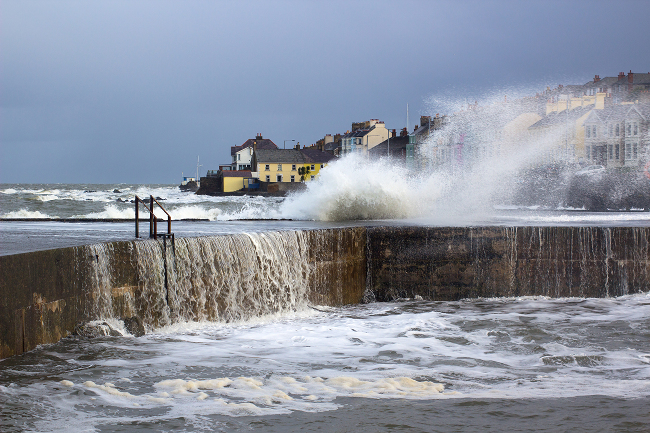What are the effects of an Arctic ‘tug-of-war’ on Britain and Ireland’s winter weather?
Author: Grahame Madge
10:00 (UTC) on Tue 4 Nov 2025
How might Arctic sea-ice loss affect Britain’s weather? That is the question a team of researchers from the University of Exeter and the Met Office have been investigating.
The team found a considerable influence of Arctic sea ice on winter weather conditions with a range of outcomes influenced by a ‘tug-of-war’ between the amount of sea-ice loss relative to background global warming.
More dramatic sea-ice loss is associated with a higher rate of warming in the Arctic compared to the global average: a process known as Arctic amplification, reducing the temperature gradient between the poles and the equator. This contrast in temperature between the Arctic and lower latitudes is an important driver of the jet stream, the system that brings storms to Europe.

The results show that future winter weather conditions over Britain are sensitive to the relative magnitude of Arctic sea-ice loss. With extensive sea-ice loss we could expect a general weakening and southward shift of the jet stream, resulting in weaker slower-moving storms more frequently occurring over the southern half of Britain. In contrast, a lower level of sea-ice loss results in a pattern of stronger and more frequent storms over the northern parts of Britain and Ireland.
Dr Steph Hay from the University of Exeter is the paper’s lead author. She said: “The daily winter weather of Britain and Ireland is mainly driven by the Atlantic jet stream, whose future position and strength is influenced by the difference in temperature between the tropics and the Arctic.
Opposing influences
“This means that the opposing influences of sea-ice loss and lower-latitude warming will shape changes to our winter weather: understanding which will dominate is crucial for determining future climate of the region.”
Dr Ed Blockley – a co-author on the paper - is an Arctic expert from the Met Office. He added: “The Arctic is warming around three times faster than the global average in response to climate change, and this is driving a significant reduction in Arctic sea-ice cover. As a near-Arctic nation, it is very important for us to understand how changes in the Arctic might impact our weather and climate.”
The paper – The impact of Arctic sea-ice loss on winter weather in the British Isles – is published in the Royal Meteorological Society’s Quarterly Journal.
The research was supported by the Advancing Arctic Capabilities (AAC) Programme, delivered by the Met Office and funded under the UK Government's International Science Partnerships Fund (ISPF).
For more information on this paper you can view a video with the authors discussing their findings.

Updated at 10:38 (UTC) on Tue 4 Nov 2025


